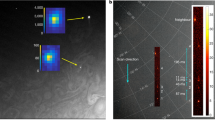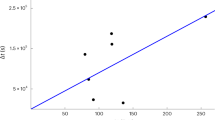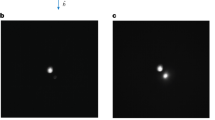Abstract
THAT memorable and suggestive epoch, the middle of November, has again arrived. At midnight the well-known stars in the “Sickle of Leo” exhibit themselves in the east and suggest meteors galore to the expectant observer. The conditions are not favourable this year, for the parent comet returned in 1899, and must now, with the denser region of its meteoric swarm, be at an immense distance from the earth. The probability is, therefore, that we shall only encounter a tenuous part of the stream, and that a few straggling Leonids will illumine our skies on the nights following November 14 and 15, but the meteors may be much more numerous than expected, as they have been in certain previous years.
This is a preview of subscription content, access via your institution
Access options
Subscribe to this journal
Receive 51 print issues and online access
$199.00 per year
only $3.90 per issue
Buy this article
- Purchase on Springer Link
- Instant access to full article PDF
Prices may be subject to local taxes which are calculated during checkout
Similar content being viewed by others
Author information
Authors and Affiliations
Rights and permissions
About this article
Cite this article
DENNING, W. November Meteors. Nature 79, 37–38 (1908). https://doi.org/10.1038/079037c0
Issue Date:
DOI: https://doi.org/10.1038/079037c0
Comments
By submitting a comment you agree to abide by our Terms and Community Guidelines. If you find something abusive or that does not comply with our terms or guidelines please flag it as inappropriate.



